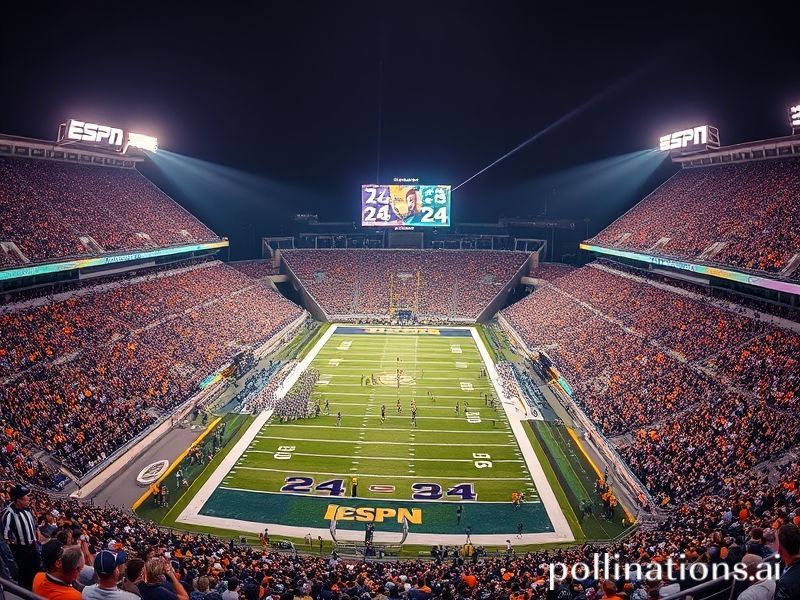Louisiana v. Missouri: How a Facebook Lawsuit Became the World’s Favorite Reality Show
Louisiana v. Missouri: A Lawsuit So American It Could Start a Trade War Over Crawfish and Meth
By the time the Supreme Court agreed to hear Louisiana v. Missouri, the rest of the planet had already filed it under “only in the United States,” somewhere between deep-fried butter and presidential Twitter feuds. On paper it is a dry constitutional squabble about whether federal agents can politely ask social-media platforms to take down posts that look like they were typed during a fever dream. In practice it is a geopolitical mood ring, flashing crimson whenever Washington remembers that its domestic spats are broadcast in 4K to an audience that still associates America with both Hollywood endings and opioid endings.
Europe, chronically anxious about American digital overreach, watched the oral arguments the way one watches a neighbor juggle chainsaws: mild concern, milder popcorn. Brussels has spent the last decade drafting 400-page regulations to make Mark Zuckerberg say “please” and “thank you” when monetizing teenagers’ insecurities. Now it sees two U.S. states arguing that the First Amendment protects the God-given right to circulate memes claiming COVID vaccines magnetize testicles. The European Commission’s unofficial reaction, according to a leaked lunch menu, was to pair the news with a 2018 Bordeaux and mutter, “Sovereignty is overrated.”
Meanwhile, in Beijing, the case is treated as a master class in how not to run an information society. State media gleefully contrast “American chaos” with China’s own orderly internet—curated, harmonious, and missing only three million search results. The Communist Party’s takeaway: if even Louisiana thinks Washington has too much power, perhaps our Great Firewall is merely ahead of its time. Somewhere in Shenzhen, an engineer is already coding a crawler to auto-translate “Section 230” into Mandarin so it can be used as bedtime propaganda.
Down south—way south—Brazilian lawmakers queued the case into their legislative TikTok feeds between carnival recaps and rainforest arson updates. They saw a morality tale: when platforms moderate too much, the Right screams censorship; when they moderate too little, the Left screams genocide. Brasília’s solution so far has been to threaten everyone with arrest, a strategy that at least has the virtue of simplicity.
Global markets, those cold-blooded reptiles, reacted with the indifference of a cat watching CNN. The dollar didn’t budge, Meta’s share price dipped 0.3 percent, then rebounded when analysts remembered that constitutional law is merely the warm-up act for earnings season. Still, the suit has quietly migrated into risk-assessment spreadsheets under “regulatory headline risk,” filed between “Elon tweets” and “Florida hurricane.” Any ruling that restricts Washington’s ability to jawbone Big Tech could, in theory, make disinformation cheaper abroad—cheaper, that is, than it already is. If you think Nigerian princes are prolific now, wait until the algorithmic floodgates open wider.
The true international takeaway is less about law than about mood. Louisiana v. Missouri confirms that the United States has reached the stage of empire where its provinces sue one another over Facebook comments while China lands lunar probes and the EU debates whether cheese names are cultural genocide. It is as if Rome spent the third century litigating whether chariot racers could wear purple on Wednesdays. Historians of the future—assuming they exist and are allowed footnotes—will cite the case as evidence that late-stage superpowers prefer courtroom cosplay to actual governance.
When the justices finally rule, probably sometime after the oceans finish negotiating their own non-disclosure agreements, the world will shrug and refresh its feed. Some will hail the decision as a victory for free speech; others will call it a green light for digital cholera. Both camps will be half right, which is the most American outcome imaginable. The rest of us will go back to betting on how many more republics can fit on the head of a hashtag before it collapses into the singularity. Until then, Louisiana and Missouri remain locked in their pas de deux, twirling like drunk debutantes at the end of empire’s ballroom, convinced the music will never stop. Outside, the band is already packing up, and the bouncer speaks Mandarin.







